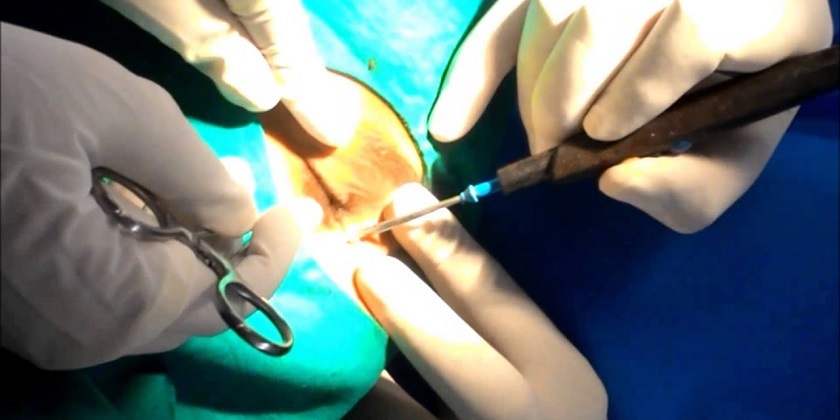- Home
- Electrocauterization

What is electrocauterization?
Electrocauterization is a routine surgical procedure. A surgeon or doctor uses electricity to heat tissue in order to:
- prevent or stop bleeding after an injury or during surgery
- remove abnormal tissue growth
- prevent infection
Why is electrocauterization used?
The treatment has a number of uses.
Surgery
A surgeon may use this technique to cut through soft tissue during surgery so they can gain access to a particular site. Electrocauterization allows your surgeon to seal off blood vessels that are bleeding during surgery. Sealing off blood vessels helps prevent blood loss and keeps the site clean.
Tumor removal
This method is sometimes used to remove abnormal tissue growth, such as a tumor. This approach is common for growths located in sensitive areas that are difficult to reach, such as your brain.
Nasal treatment
If you get frequent nosebleeds, they’re likely being caused by an exposed blood vessel in your nose. Your doctor may recommend this type of treatment even if your nose isn’t bleeding at the time you seek medical advice.
Wart removal
This technique is frequently used to treat genital warts or warts on other areas of the body. Wart removal usually only requires one treatment.
How do you prepare for electrocauterization?
No special preparation is needed for this procedure. In the case of excessive bleeding, your doctor may take a blood sample to test for anemia or a clotting disorder. Frequent nosebleeds are one example of excessive bleeding.
Several days before your surgery, your doctor may tell you to stop taking blood-thinning medications such as:
- aspirin
- ibuprofen (Advil, Motrin)
- warfarin (Coumadin)
the doctor will tell you not to eat or drink anything after midnight the night before your procedure. You should also try to avoid smoking on the days leading up to your surgery.
What are the risks of electrocauterization?
The treatment itself has minimal risks. Risks of electrocauterization may include:
- slight bleeding
- infection; your doctor may give you antibiotics to reduce this risk
- pain or mild discomfort; your doctor may prescribe you pain medication for after the procedure
Tell your doctor if you have a pacemaker or prosthetic joint before undergoing this treatment.
Risks of anesthetics
Most healthy people don’t have any problems with general anesthesia. However, there’s a small risk of long-term complications. These risks largely depend on your general health and the type of procedure you’re undergoing.
Some factors that may increase your risk of complications include:
- medical conditions involving your lungs, kidneys, or heart
- the family history of adverse reactions to anesthesia
- sleep apnea
- obesity
- allergies to food or medications
- alcohol use
- smoking

